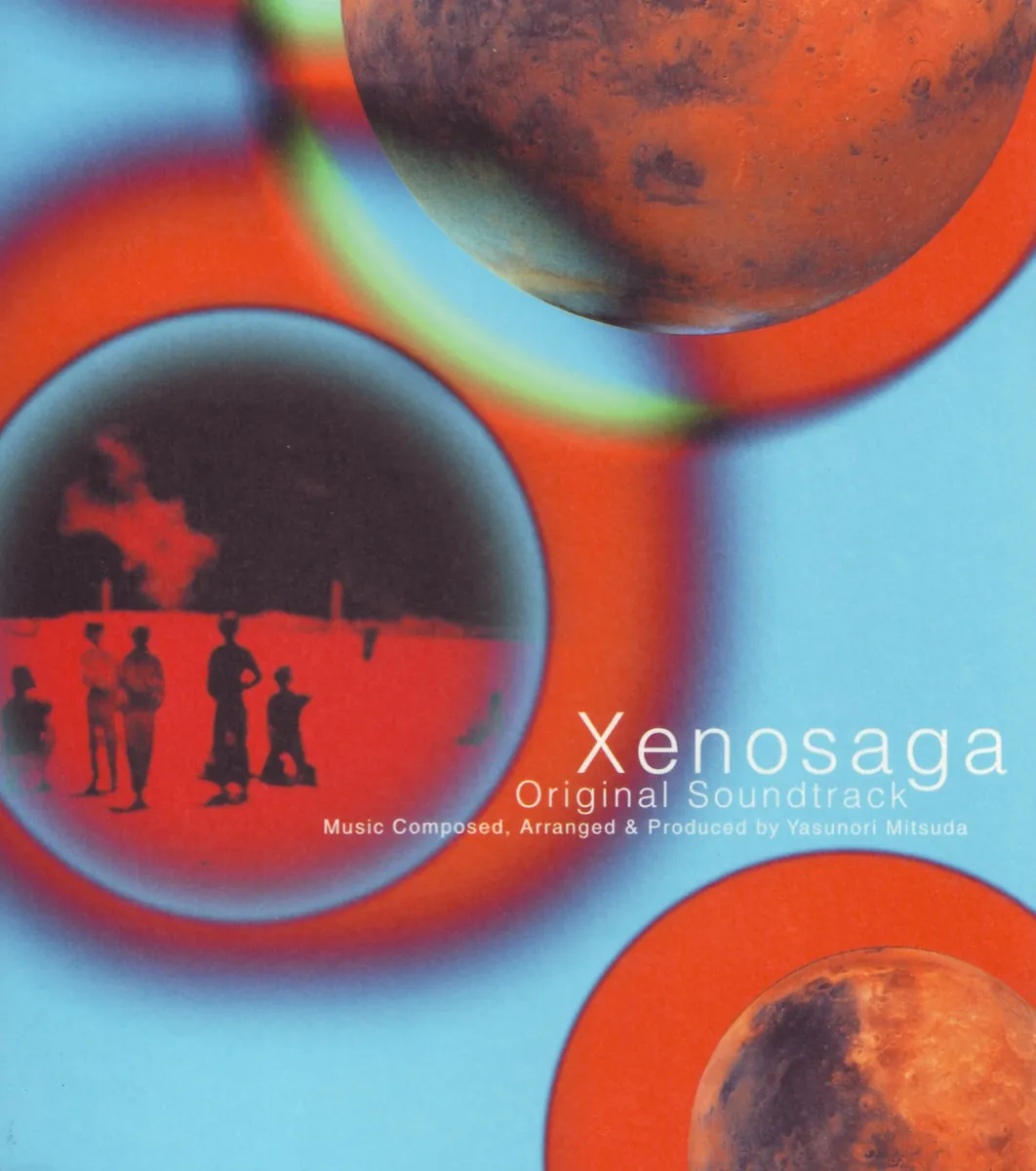Between having a resume of soundtrack scores such as the Chrono games and Xenogears, and using one of the best live orchestras in the world for his most recent score, which just happens to be for an already highly anticipated RPG, Yasunori Mitsuda has quite a lot of expectations to live up to. Thankfully, for the most part, Xenosaga Episode I‘s soundtrack fulfills those expectations as Mitsuda has made the most out of his work with the London Philharmonic Orchestra. Mitsuda has been known for strong Celtic influences in his work, however, for the most part, Xenosaga takes a step away from that.
The limited first print of the OST, which is 2 discs (45 tracks) long, comes in a digipack case, which folds open, and the insert booklet is tucked away in the left sleeve. The regular edition is simply a jewel case which still includes the insert. The packaging art is simple, with bright red spheres cast against a bright blue background, with each sphere containing a different picture, be it a planet or people. Aside from lyrics and credits (including a full list of the London Philharmonic), the insert also contains notes from Mitsuda himself, and from Xenosaga‘s director, Tetsuya Takahashi. If you think that’s a lot, there’s even a note from Joanne Hogg herself, and a short explanation of each song. If you know Japanese, you have a bit of reading to do here.
To start, the live orchestra definitely gives the score a fuller and deeper sound — and often, feels like a movie score. The overall tone of the album is serious, sometimes dark, heavy and even haunting at times. There’s not too many moments on the light-hearted side. The religious feel of the album is more present in Disc 2, which includes the more dramatic tracks overall. Vocal songs range from choral, “The Miracle,” to regular vocal, “Kokoro,” and even opera, “Albedo.” Of the vocal songs, my personal favorite is “The Resurrection,” an a cappella track in which the choir shows rich and powerful voices when need be. The songs that step away from the orchestra feel, such as “Warmth,” which is piano-only, may come as a bit of a relief in their simplicity compared to much of the score. And, of course, there will be times one will be reminded of past Mitsuda works — the strong presence of violins will remind you distinctly of Chrono Cross; and tracks such as the battle themes and “Anxiety” echo Xenogears. What surprised me the most was hearing a piano rendition of “Green Sleeves” on Disc 2 (for those who are unfamiliar, Green Sleeves is a popular folk song known for a rather beautiful melody).
On the downside, Mitsuda is known for using a common melody in a small handful tracks of his albums. Here, the melody to “Kokoro” is used a few too many times, such as “Game Over,” the last track of each CD, etc. While it remains a great tune, I found it to be a tad overused here. All the tracks still turned out well though, so there’s not too much to complain about. There’s also the occasional track that comes off on the bland side, fortunately, this isn’t a common occurrence.
Xenosaga would make a great addition to to any game music fan’s soundtrack collection, and for those who lean more towards classical and orchestrated arrangements, then it’s a must.




